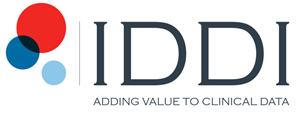Cancer clinical trials have been a major determinant of advances in medical oncology over the past 50 years. Both for patients participating in cancer clinical trials and for future patients in clinical practice, clinical trials that are well designed, successfully conducted, and adequately analyzed and reported provide the cornerstone for improvements in oncology and other areas of medicine. However, oncology is well known for its relatively low success rates during the development of novel agents, many of which never make it to an increasingly competitive market. Moreover, as in other areas of medicine, a crisis is currently affecting cancer clinical trials. The most salient features of this crisis are the declining efficiency and the prevailing unpredictability of outcomes of these essentially global enterprises.
The rising costs of cancer clinical trials, coupled with longer times for completion and increased regulation, are probably at the root of the declining efficiency. Moreover, many of the factors that predict for a successful drug development process remain poorly understood. At the same time, our increased capacity to interrogate the biological features of tumors, coupled with our increased ability to target genetic and epigenetic abnormalities that drive the neoplastic phenotype, promise to bring dramatic improvements in the future.
Finally, advances in information and communications technology will likely provide an essential toolkit for cancer clinical trials. Several authors have recently pointed out problems and potential solutions for the future of cancer clinical trials, and regulatory agencies and academic institutions have contributed their share of guidance and foresight.
In this webinar, we will explore what we believe are the driving factors of change toward that future, hoping that it will be suitable to a broad audience of stakeholders in cancer clinical trials.
Speakers

Dr. Jay Herson, Senior Associate, Biostatistics, Johns Hopkins University Baltimore, Maryland USA
Dr. Herson. A collaborator of IDDI: After working on cancer clinical trials at MD Anderson Hospital he formed Applied Logic Associates (ALA) in Houston in 1983. ALA grew to be a biostatistical-data management CRO with 50 employees when it was sold to Westat in 2001. Jay joined the Adjunct Faculty in Biostatistics at Johns Hopkins in 2004. His interests are interim analysis in clinical trials, data monitoring committees, and statistical / regulatory issues. He chaired the first known data monitoring committee in the Pharmaceutical industry in 1988. He is the author of numerous papers on statistical and clinical trial methodology and, in 2009, authored the book Data and Safety Monitoring Committees in Clinical Trials, published by Chapman Hall / CRC.

Dr. Everardo Saad, Senior Medical Expert, IDDI
Dr. Saad, IDDI’s Senior Medical Expert, has over 15 years of experience in Medical Oncology and clinical trial designs. He graduated in Medicine and trained in Internal Medicine in Sao Paulo, and did his fellowship in Medical Oncology at the University of Texas M.D. Anderson Cancer Center, in Houston. After practicing for several years, he shifted his professional career towards education and research in Medical Oncology, and has a special interest in clinical trial methodology, the assessment of endpoints, and the development of novel therapies for cancer patients.
Who Should Attend?
Professionals involved in design, management, analysis and regulatory aspects of confirmatory clinical trials in the pharmaceutical, biotechnology and medical device industries.
Xtalks Partner
International Drug Development Institute (IDDI)
International Drug Development Institute (IDDI) is an expert center in biostatistical and integrated eClinical services for Pharmaceutical and biotechnology companies in several disease areas, including oncology and ophthalmology. IDDI optimizes the clinical development of drugs, biologics and devices thanks to proven statistical expertise and operational excellence. Founded in 1991, IDDI has offices in Belgium, Boston (MA), Raleigh (NC) and San Francisco (CA).
Media Partner
You Must Login To Register for this Free Webinar
Already have an account? LOGIN HERE. If you don’t have an account you need to create a free account.
Create Account





